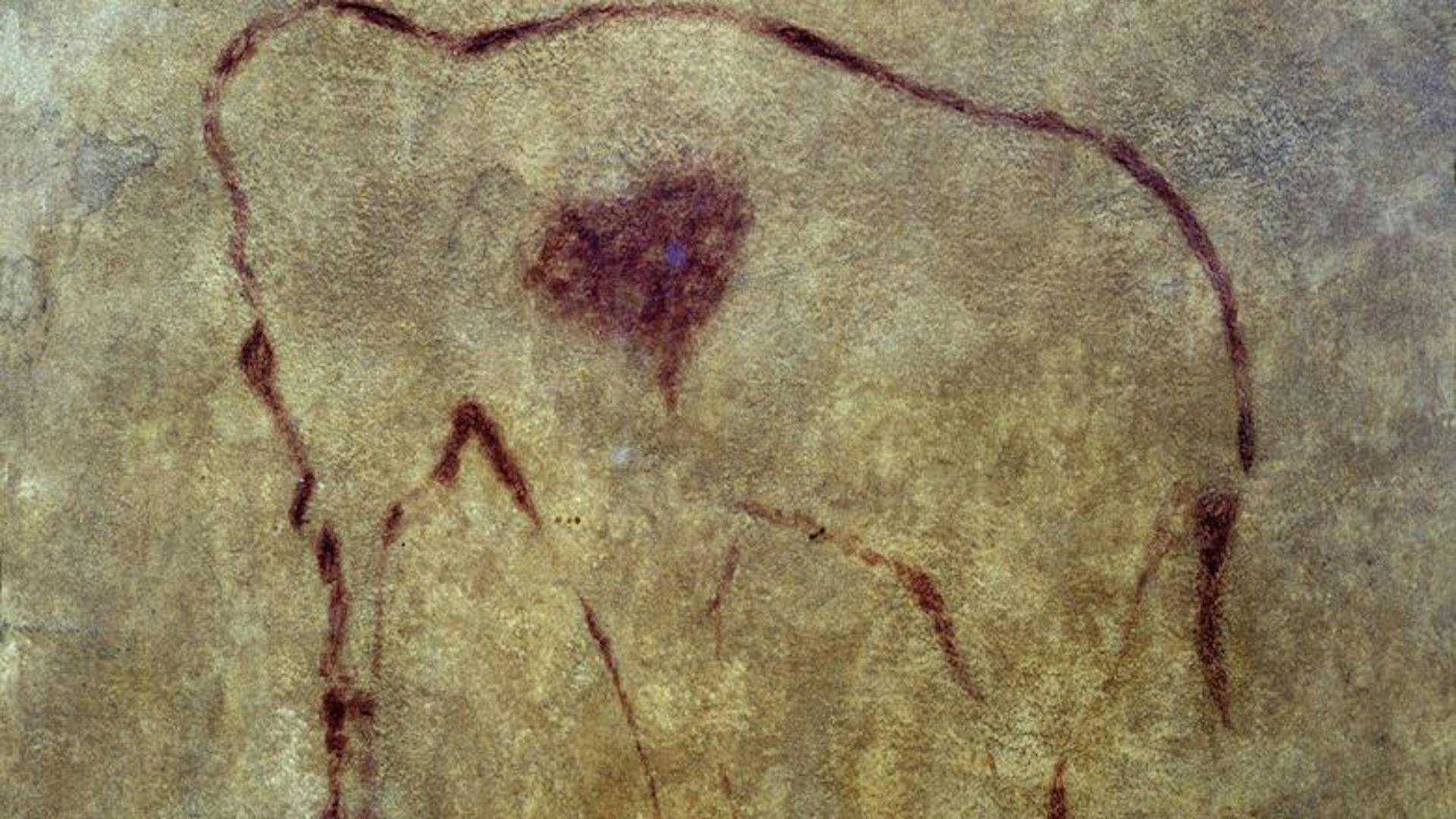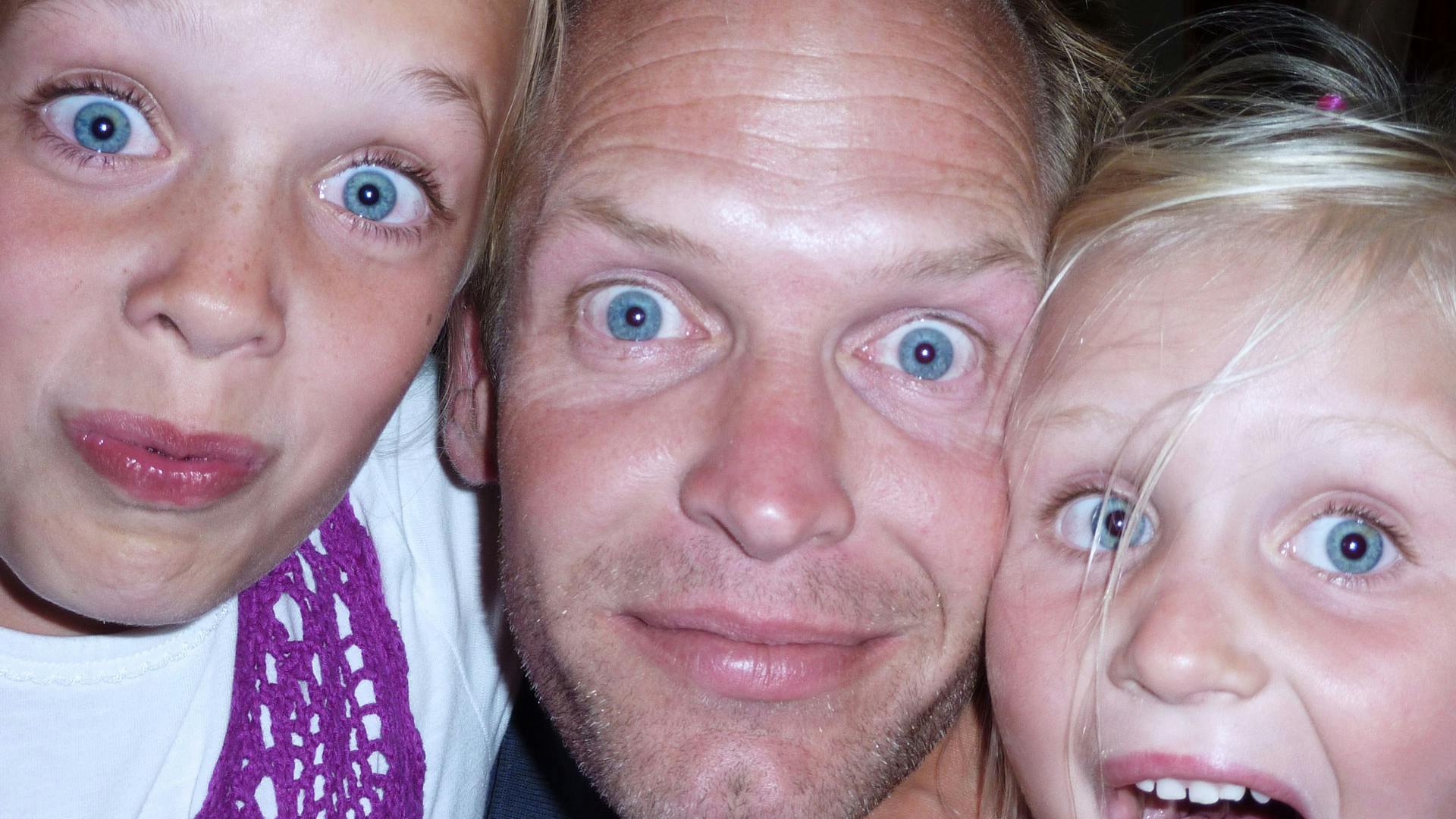
Family ties
When Marc Rijken had his first heart attack in 2014, the incident was not only unexpected, but seemed unexplainable. Three years later, after a second event, experts still struggled to pin down the cause. Only later was it discovered that he is suffering from a genetic condition that causes high risk of cardiovascular disease, a discovery that would change his and his family’s life for good.
By Goran Mijuk, photos by Laurids Jensen, videos by Nicolas Heitz



Three pairs of shiny blue marbles, the color of a cloudless sky, pierce through the photograph that Marc Rijken shows me on his laptop in the living room of his house in the Dutch town of Maarssen. With two of his three daughters, he smiles into the camera, healthy tanned after a relaxing beach holiday, looking like British pop star Sting in his heyday in the 1980s.
The snapshot, as Marc tells me, was taken more than a decade ago during a summer holiday. It is a symbol of family bliss and beauty, as well as genetic bonds. “I love the picture because it shows how our eyes are almost identical. I was always proud that they had my eyes. But this is not the only trait I share with them,” Marc says. “Although we didn’t know back then.”
Their similarity would haunt them a few years later after Marc suffered his first heart attack. “It all started some 10 years ago,” he tells me when we visit the Rijken family at their home, which is half an hour from the Netherland’s capital Amsterdam. “Shortly after a ski trip, I was playing a field hockey game and suffered a minor head injury. At home, I suddenly felt very nauseous and turned all gray in the face.”
His wife Manon rushed him to the hospital. But even after doctors performed a battery of tests, they were unable to establish what was wrong and sent him back home with a “concussion diagnosis.” The emergency hospital staff assumed he felt dizzy because of the slight head injury he received during his field hockey training. It was a fair assumption given the hardness of the ball and sticks used in one of the Netherlands’ most popular sports. Marc, however, continued to feel unfit for several weeks during which he struggled to regain his normal energy level and had to stop working as an aviation customer service manager.
After consulting a second cardiologist, the doctor found that Marc’s arteries were heavily clogged and that he urgently needed a bypass operation to ensure continuous blood flow to the heart. In total, seven bypasses were set, using healthy arteries from his legs. “This was all totally unexpected,” he explains. Just months before, Marc had completed a marathon in a personal record time. “I was fit, did a lot of sports. Why my arteries were in such a bad shape was unclear to me,” he says. His doctors were left baffled too and put the cardiac event down to “bad luck.”
His daughters struggled to understand what was going on. India, the eldest, who was 12 at the time, remembers that they were puzzled with all the to-and-fro between the various hospital and doctor visits. They were still unsure what was going on even on the day of the heart surgery, when they visited their father in hospital.
“We didn't really register how big a surgery it was that he was going to have that day,” India recalls. “It was just strange because we initially thought that he had a head injury. While we knew that he didn’t feel well, we were confused about what was really going on.”
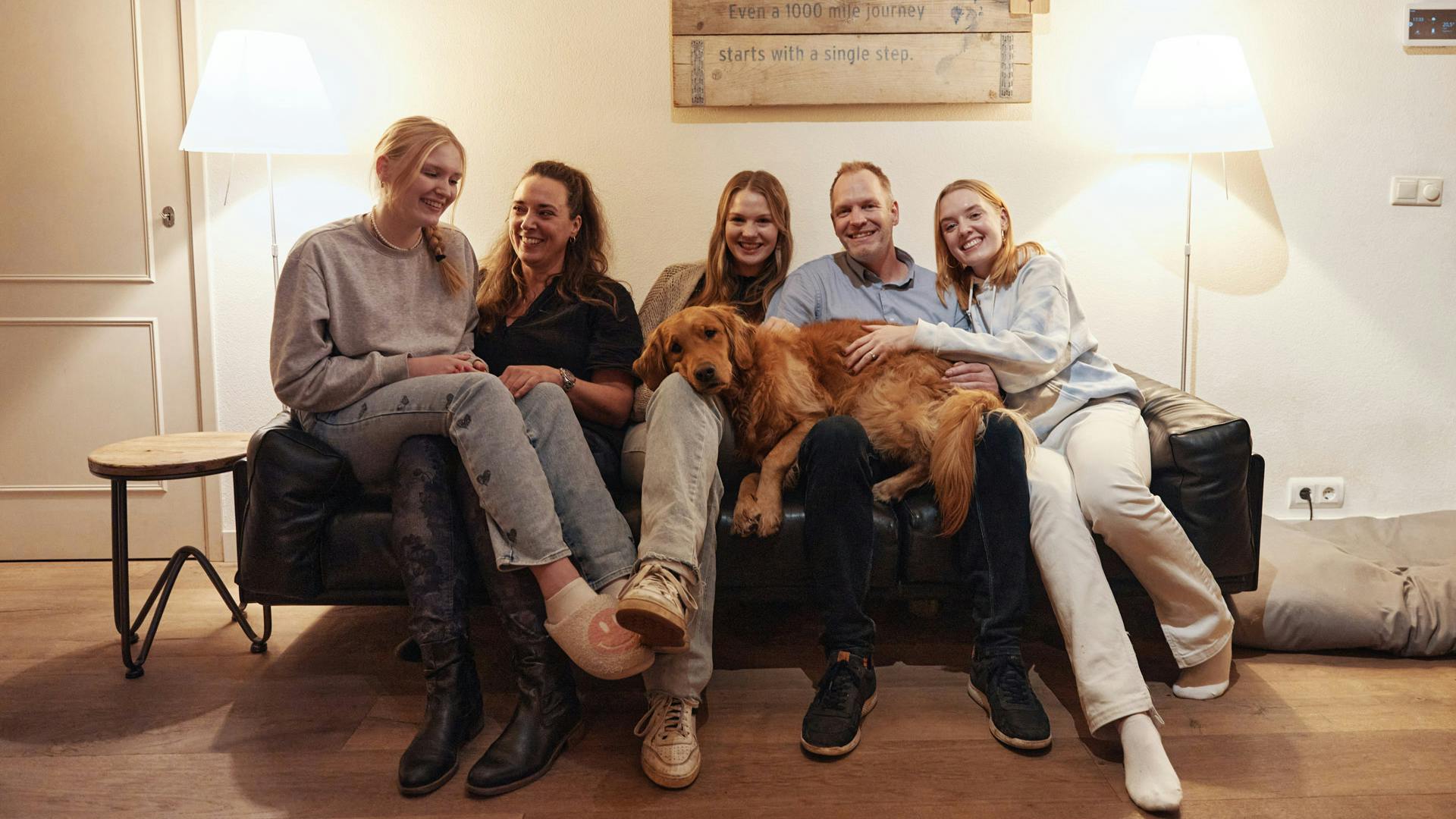
The Rijken family (from left to right):
Arwen, Manon, Beau, Marc and India.
Another setback
Marc partially accepted the doctors’ verdict that his heart attack was due to an inexplicable coincidence. But he remained skeptical, not least because he struggled for over a year before he regained his normal sense of self. Once he recovered, he was finally able to do sports again, enjoy motorcycle rides, go on long-distance vacations with the family and resume work.
But the happy hiatus would not last for long. About two years later, he started to feel weak again. Doctors found, to Marc’s renewed surprise, that he needed yet another operation on his heart because his freshly set bypasses were blocked too. Only stent surgery could help him this time.
During the operation, when an expandable metal mesh coil was introduced into his artery to safeguard the blood flow to his heart, Marc experienced another heart attack on the operating table. Doctors could not fathom the reason why his arteries were in such poor condition, which left Marc struggling not only physically, but also mentally.
The “bad luck” argument lost its power and Marc and his wife set out to search for a definitive answer. But the cardiologists they visited were unable to find the cause of his disease. By chance, a co-worker suggested making an appointment with Dr. Erik Stroes at the Amsterdam Medical University Center, who finally performed a test that shed light on Marc’s condition.
Dr. Stroes immediately suspected that Marc could be suffering from elevated levels of a certain lipoprotein. In his view, this would explain how an athletic and lean person in his early forties could have suffered two heart attacks even though he had never smoked, was not overweight and had no other risk factors such as high cholesterol or high blood pressure.
The diagnosis that his condition was due to elevated levels of lipoprotein (a) – commonly pronounced L P little A – brought relief to Marc, for a short while at least. He felt that at last he understood what was wrong. However, the verdict also brought more questions and worries, which would unfold in the months ahead and turn family life upside down.
A glimmer of hope
Marc’s patient odyssey, unfortunately, is quite common. Elevated levels of Lp(a) are underdiagnosed. Cardiologists often miss it because the disorder is not well understood, and doctors usually focus on other symptoms and check different health parameters. This hindered Marc’s diagnosis and overshadowed his life, a situation that could easily have been avoided with a simple blood test.
It is surprising that many cardiologists are often unaware of a condition linked to elevated levels of Lp(a), given its prevalence. In fact, one in five people worldwide suffer from this condition. It is caused by a gene that overproduces Lp(a) particles, leading to faster arterial narrowing. This happens because Lp(a) adheres to artery walls more readily than LDL cholesterol. Depending on the severity of the condition, this can lead to heart attacks and other coronary diseases such as strokes.
But Marc’s diagnosis was only the start of yet another long journey. While research is underway to develop treatments for elevated levels of Lp(a), there are no effective medicines available yet. But Marc was lucky enough to have found Dr. Stroes, one of the leading Lp(a) experts, who devised a treatment regimen with statins and other supplements.
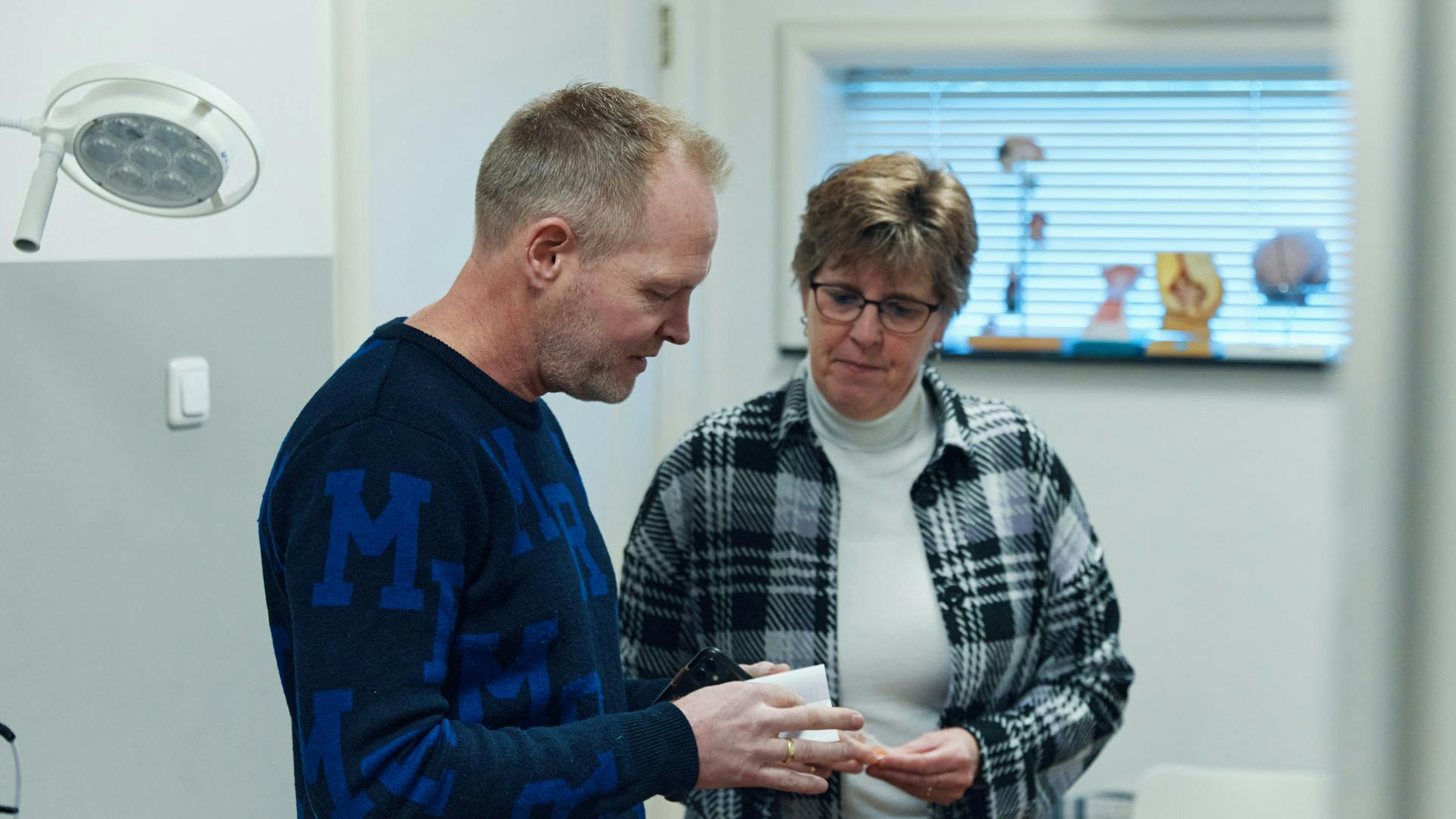
Marc Rijken during a doctor’s visit.
Another glimmer of hope sparkled on the horizon when Dr. Stroes paved the way for Marc to participate in a clinical trial, which could help him and hundreds of other patients suffering from elevated Lp(a). But given the genetic nature of Marc’s condition, it was not long before the family had to stomach yet another blow.
Another shock
“Having finally found the reason for my heart attacks brought some clarity to my life,” Marc says. “But the clarity also came with a sad discovery. Since my heart condition is genetic, we were also asked to get our children tested. This is how we found that our two youngest girls, Arwen and Beau, also suffer from the condition.”
That two of their children had elevated levels of Lp(a) was a shock. But the family was determined to continue a normal life. An immediate step was to change their diets, consuming less fats and doing more sports. While this was not much of a lifestyle change for them as they had all been athletic before, their additional efforts helped increase their awareness of the need to take care and gave them a sense of control.
Before suffering his first heart attack, Marc led a sporty life, even running marathons.
After Marc was diagnosed with Lp(a), it took him a long time before regaining his old shape.
Today, Marc goes to the gym regularly to keep fit and fight against the disease.
“When Marc got sick, we started thinking about how to adjust our lifestyle so that we could live both happily and healthily,” says his wife Manon Rijken, who works as a vice principal in a nearby school, recounting the steps they took at the start of her husband’s ordeal. “When Beau and Arwen were diagnosed with elevated Lp(a) levels, we decided that our whole family should make the adjustment in diet and live the same lifestyle because it’s a healthy lifestyle anyway, so it’s good for everybody,” she says.
The biggest change, however, was in their mental attitude. While Manon concedes that sometimes they gloss over the challenges and tend to “put their head into the sand,” they try to talk openly about the problems, especially with Arwen and Beau. “We talk about lifestyle and life choices because if they want to start smoking or vaping, we know that the dangers are far more severe.”
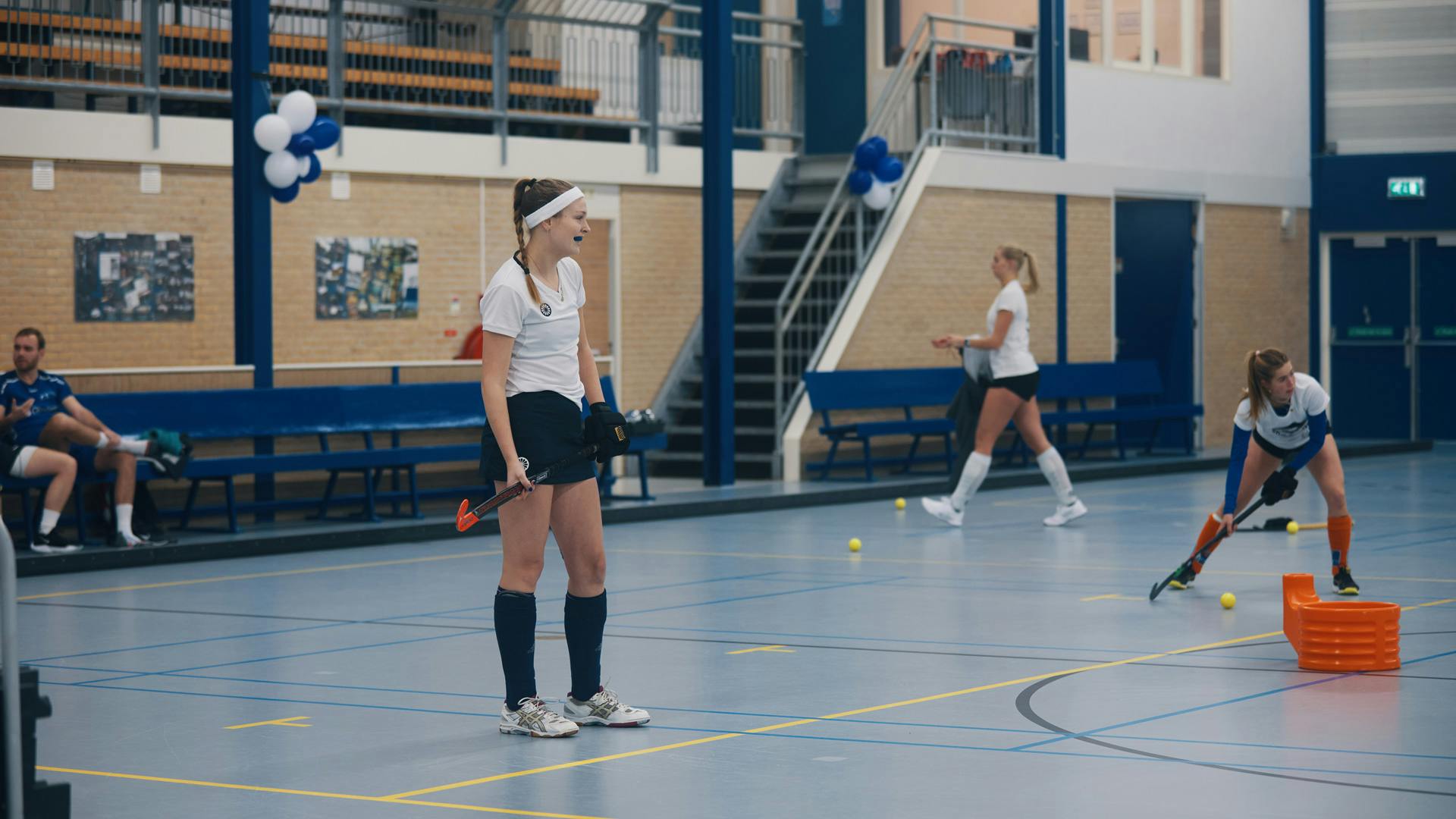
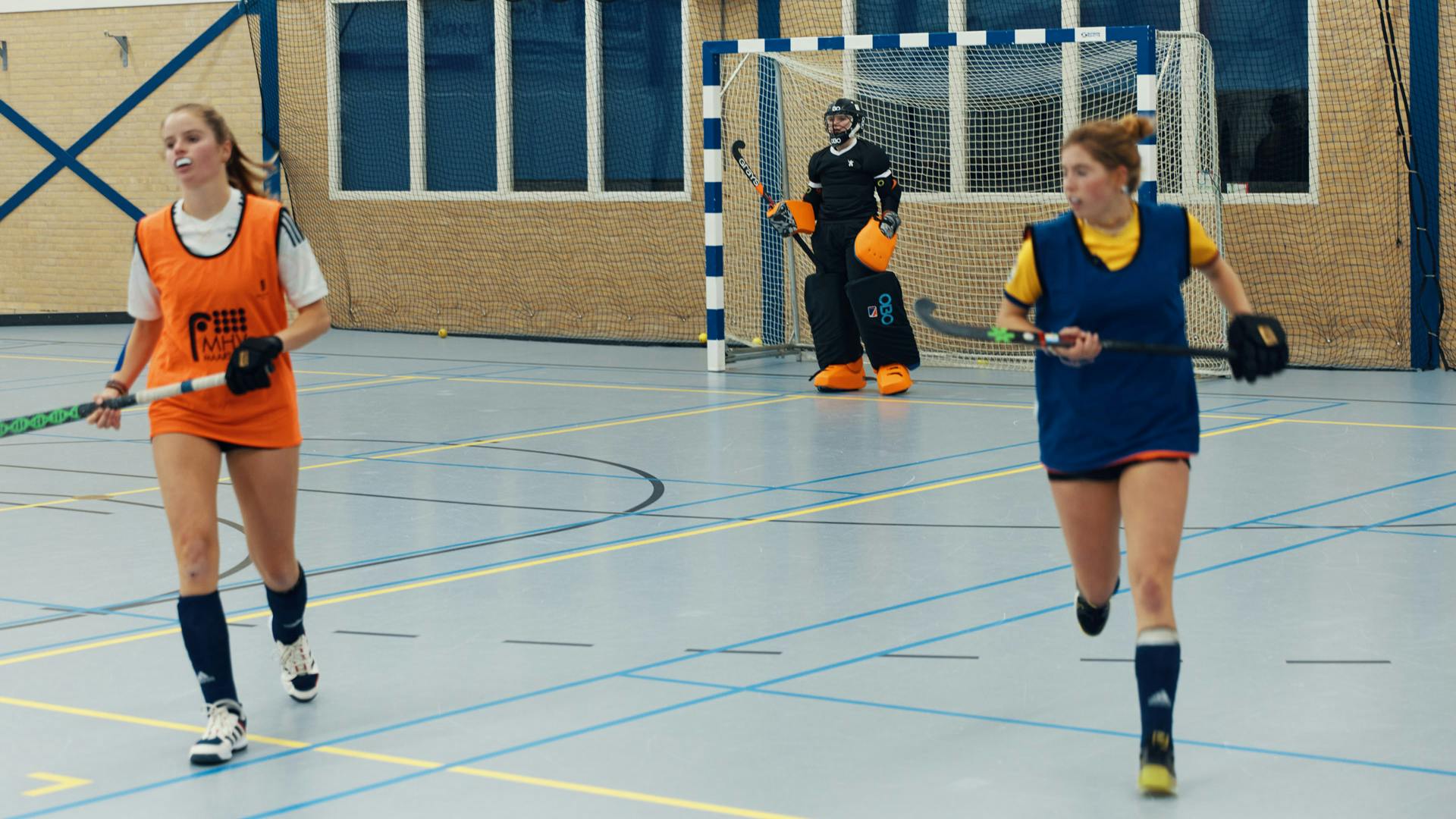
Sport is important to Beau and Arwen.
Field hockey gives them both a mental and emotional boost.
Still, the family is prepared for the tide of challenges they face in their daily lives. “In our family, all of us are aware that we want to make the most of life, because we are aware that life can be short,” says Manon. “So, that’s why we try to make a lot of nice memories, do lots of traveling, go on skiing holidays, and also live as healthily as possible so we can enjoy this life together as long as we possibly can.”
The holiday trips often take them to distant destinations across Asia, but also to the European Alps, where they enjoy cuddling together in a cozy chalet. When they go on their trips, they like being active and enjoy every moment together. Their family album brims with pictures of bike tours in Asia, ski adventures in the Alps, or joyful moments at a local hockey tournament in Maarssen.
Coping
However, for Arwen and Beau, their health condition takes a toll on their mental well-being. Their childhood virtually ended when they had to cope with their father’s first heart attack, even though back then they were unable to fully grasp the situation. Once they learned that they were also affected by the condition, thoughts about the disease would intensify and overshadow their daily lives.
Arwen, who is 16 now, says that she thinks a lot about the disease because it is genetic. “What if I put my kids through the same thing that I went through as a kid? That’s something I discuss with my boyfriend. While he thinks it doesn’t really matter, I think it really does matter because it’s traumatic.”
Arwen talks fast. She is an energetic adolescent who not only plays as a goalie in the local field hockey team. She is also a gifted singer, enjoying her time in the school band, where she sings together with her friends once a week to the tune of popular songs by Taylor Swift, Bruno Mars and Queen, helping her to manage the situation.
Sports and music are some of the favorite past-times of Beau, Arwen, and India.
Arwen has recently joined the school choir, where she enjoys being with friends and singing popular songs with them.
India also has a great talent for music. She recently composed a song reflecting her thoughts on how the family copes with disease.
Arwen and Beau also enjoy playing field hockey.
“Sometimes I get flashbacks and sometimes I really panic and then I cry and stuff like that,” she says. “So, I do think it’s a kind of trauma. But I think that’s quite normal because what I’ve been through is not normal. But when I sing and am together with friends, I can forget it,” she says, energetic as ever.
Her sister Beau, who is 19 and studying marine sciences, also finds refuge in sports and music. Sometimes she feels isolated because she needs to explain her condition to her friends – repeatedly. Her science background, however, helps her to balance the difficulties of her condition.
Friends are especially important to Beau and, given her perfectionist nature, she enjoys the sheer thrill of winning in her beloved sport. “I love field hockey the most and winning is just the best feeling ever,” Beau says. “Being together with the team and playing with friends gives me a lot of support and a way out of the pressure that can sometimes build up.”
Exchanging views with other patients also gives her reassurance. “Sometimes, the disorder comes to your mind, and you are thinking: ‘Oh, yeah, okay.’ You don’t know what’s coming,” she says. “But this morning I spoke to a patient who also has high Lp(a) levels, and he didn’t have anything yet. It can go either way. You can either stress about it every day, or you can just be like: ‘Okay, stay positive, it’s okay.’”
Role model
Arwen, Beau, and India receive strong support from their parents, who imbue them with a sense of positivity and optimism. Their parents also give them the freedom to express themselves and follow their dreams – a power resource they can tap into indefinitely as both Marc and Manon go to great lengths to help Arwen, Beau and India manage their lives.
“In my family we try to think positively of our condition as much as we can,” Arwen says. “I think the situation scares us, but Mom and Dad manage to conceal their worry. I think they just want to show positivity. It’s a really good thing because it makes me more positive about this too. I cope with it by doing things I love, doing things I enjoy and spending a lot of time with my family like going to concerts, going to the beach, just so that we can have a really great time together.”
The Rijkens enjoy quality time together. They regularly organize parties with their relatives and invite friends over.
Their Golden Retriever is an also important member of the family. They enjoy going out with him for long walks.
During the parties, they Rijkens enjoy healthy foods and drinks.
Beau shares a similar attitude. “Thinking positively comes naturally to me,” she says. “Yet sometimes when you’re not having a good day, negative thoughts creep in. But you forget about it and go on, because, you know, I can die tomorrow in a car accident or something, so just live in the moment and go with it.”
A strong source of optimism is their father. For India and her two sisters, Marc is not just someone who is dear to their hearts, but a role model whose way of managing the disease is an inspiration to them. “I think he’s probably the most mentally strong person that I know,” India says. “We have only ever noticed physical challenges that he faced, but never mental ones.”
India, who like her sisters has developed a strong lyrical side, plays the piano and composes her own songs, admits that facing the same challenge as her father would have been a struggle for her. “I can't imagine going through this, only to then pick up my life where I left off. To continue with even greater strength and to create something even more beautiful from it. I think I couldn’t have done it. I’m proud of him. I think after this he’s even more of a hero to us than before. Just because he showed us how strong he really is.”
Engagement
The children also take pride in their father’s role as a patient advocate. Since last year, Marc has been serving as an ambassador for FH Europe Foundation, a patient group that aims to improve awareness for inherited lipid conditions such as Lp(a). The involvement helps him and his daughters to connect with other patients, but also to spread the word about the dangers of undiagnosed and untreated heart diseases.
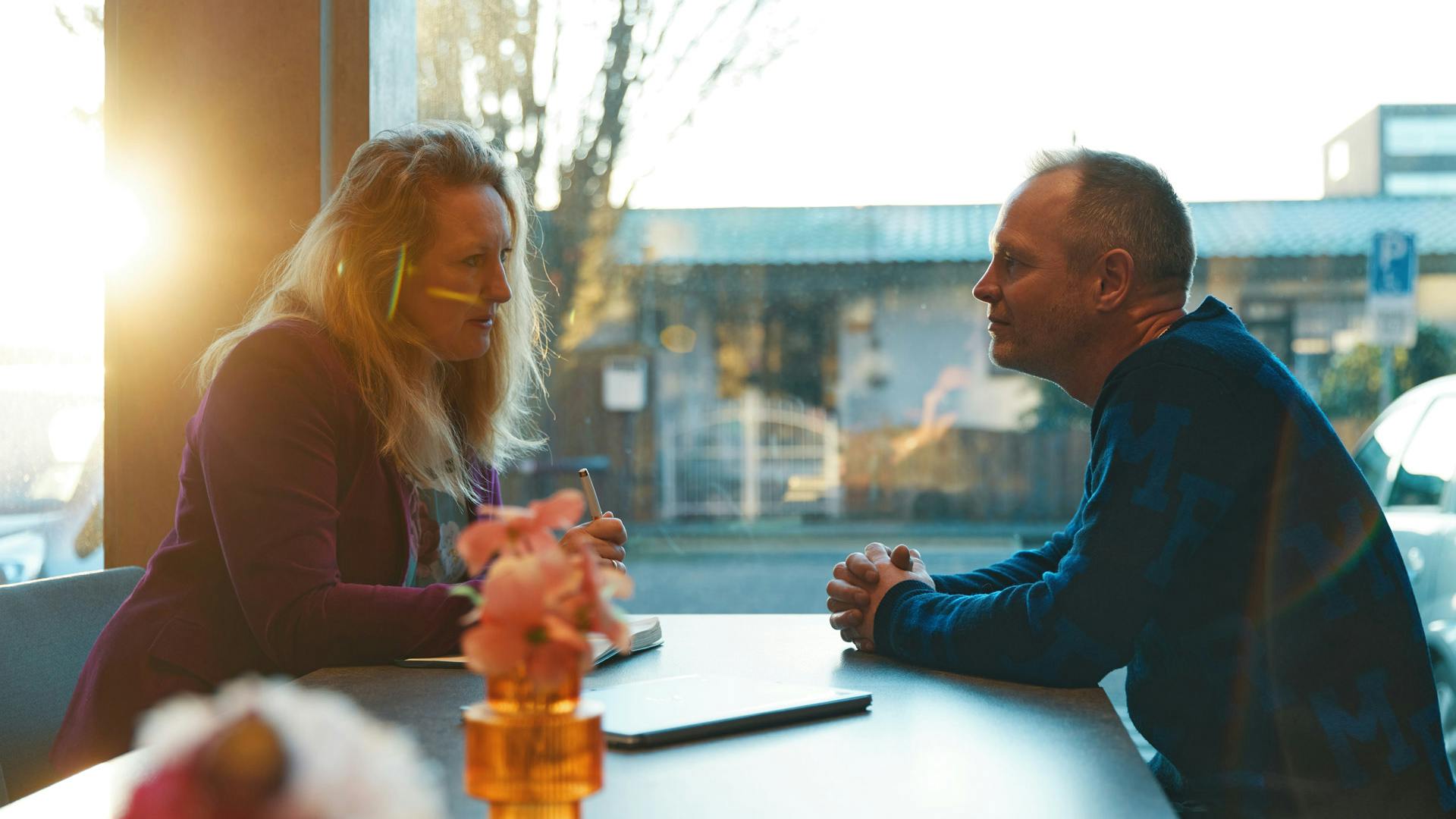
Marc in discussion with Magdalena Daccord from FH Europe Foundation.
In December 2023, Marc, along with his wife and his daughter India, attended an event at the European Parliament in Strasbourg organized by the patient network European Alliance for Cardiovascular Health. There, they joined other cardiovascular patients in sharing their experiences. Marc also addressed politicians, emphasizing the need for increased investment in cardiovascular research.
The event, supported by member of the European parliament, was organized not only to raise awareness about the fact that today, in Europe alone, roughly 50 million people live with a cardiovascular disease – worldwide the number stands at 200 million – but also to lobby for new legislation, aiming to increase the focus on this significant global healthcare challenge.
Besides recounting his personal history, Marc also encouraged India to speak about how she experiences his disease. Instead of giving an elaborate speech, India recited a poem, which left some of the more than 200 guests in tears.
I was 12, and my dad came home not feeling well, I was alone with him and my sisters, confused and unable to react properly.
At 13, my dad had open-heart surgery, I was not scared, for I did not understand the severity of the situation yet.
I am 16, my English teacher calls me to the front of the class and says: “It’s okay if you are distracted today as your dad has his heart surgery.” Then she puts on a video on cardiovascular disease as part of the assignment, and all eyes turn to me.
My dad feels a little under the weather, I am 18, and I do not leave his side.
I turn 21, a footballer on TV has a heart attack. In turn, I have a panic attack in the middle of a party.
(I remember) how an ambulance passes by and I rush to the first responders, who are in our living room…
Setback after setback try to knock him down. Not only does he get back up, but he masters his own faults.
I am the proudest, to be the daughter of my father. For he is the strongest man I know.
My mother, standing at his side, they are a force of nature when combined.
I am my parents’ daughter, and that’s all I’ll ever know.
Loving life
Marc enjoys his work as a patient advocate since it gives him an additional sense of purpose to fight the disease. Otherwise, he seems to harbor no resentment against his circumstances, instead embracing them with resilience and optimism. For him, and each member of the Rijken family, including Marc and Manon’s parents, who often come to visit for parties, only the future counts.
“Do you think life treats you unfairly?” I ask Marc. “I don’t really know,” he answers, “and I don’t really give it much thought because I want to focus on things I can control. So, of course, I hope that one day a medicine will be on the market that will help me, my daughters and others. For now, we really want to live a healthy life,” he says.
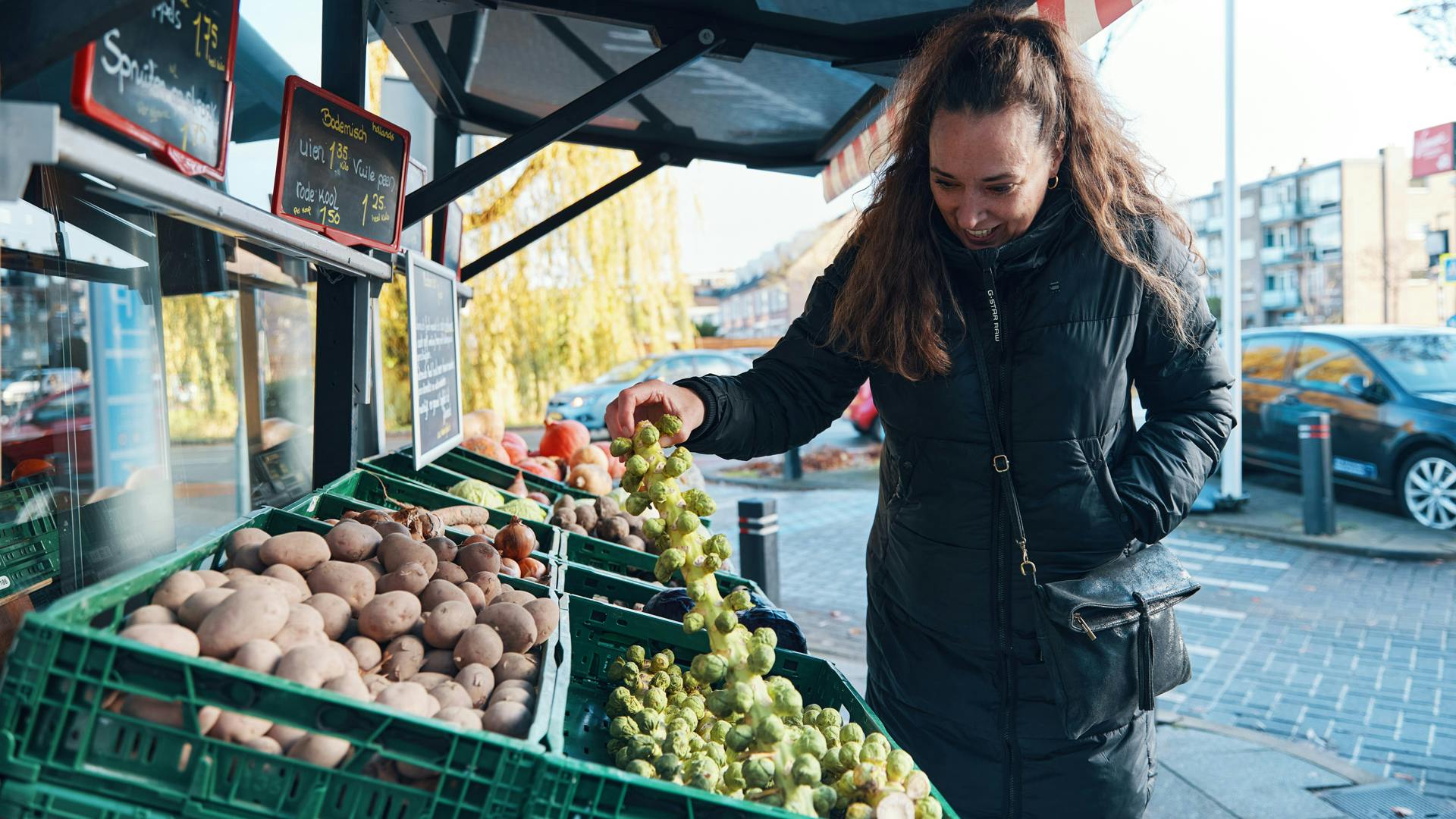
Keeping a strict diet can also be fun.
Nevertheless, he is fully aware that without his wife, he would not have been able to manage the situation as well as he did. He shows me another picture from his file in which he and Manon are standing under a heart-shaped symbol at a beach. “I could not have done it without her,” Marc says. “She’s lovely and strong and keeps the family together. She is energetic and she plans things. Often, I think, she plans too much. So, her day has about 26 hours and that can be quite exhausting, but at the end, I’m always glad that she did it because that takes us to different places and adventures,” he says. After a long pause he adds “…I love her very much.”
Marc, who regularly goes to the gym again and has resumed playing his beloved field hockey, says that the family wants to have dreams and make plans to travel the world. He and his wife want to see the kids grow up, how they maybe get married and have children of their own. “We are optimists by nature, and we want to remain socially engaged via family, friends, sports and work,” he says.
Arwen, Beau and India are aware of why they get this special treatment. “Our parents have spoiled us a lot by going on really amazing holidays to Mexico and Indonesia and I think that’s where I had the most fun memories,” India says. “But we also just love to be together at home, sitting on the couch and enjoying a film. This is what counts.”
While India and Beau will soon leave the family home, their eyes are all set on their next trip. “Our next holiday with the five of us are the Olympics in Paris,” says Beau. “I find it even more symbolic for our family as my dad has always said he would get a tattoo of the Olympic symbol, with its five rings representing each of us. So now we’re going, and maybe he’ll end up getting that tattoo when we’re in Paris.”
The tattoo, if only symbolic, will further strengthen their bond and serve as a tangible sign of their deep connection.



